"Communities face becoming isolated"
The potential collapse of smaller bus operators because of the coronavirus pandemic could hamper rural Yorkshire's economic recovery and leave vulnerable communities isolated.
North Yorkshire leaders are making the case for a multi-million pound investment in bus services for England's largest county amid fears that loss of revenue could see services cease and operators go out of business.
With passenger numbers not expected to return to pre-pandemic levels for years, it is feared that "some commercial services that were only marginally profitable will become unprofitable and will therefore be terminated or curtailed in some way".
In their submission to the Government asking for £2.4bn in funding as part of a devolution deal, North Yorkshire's political leaders say the situation will likely be much worse in rural areas where many bus services only run once a day or week.
The document says: "Without intervention, we face many of our communities becoming isolated, with damaging consequences for economic prosperity and our decarbonisation agenda, given the resulting increases in car use where residents do have a car available."
A special report by The Yorkshire Post reveals widespread fears that without further investment from the Government to keep bus services going while they remain commercially unviable, many local services may be "unsustainable".
In West Yorkshire, months of government messages telling people to avoid public transport combined with social distancing measures mean fewer than 40 per cent of pre-pandemic passengers have returned, despite 90 per cent of bus services running.
The Government has provided hundreds of millions of pounds of emergency funding to bus operators and has now extended its support scheme for another eight weeks at a cost of £218m.
The Department for Transport also agreed to pay another £37.4m to keep light rail systems like Sheffield's Supertram running for another 12 weeks.
But local authorities say they are still funding journeys that are not being made after being asked to pay for concessionary journeys at pre-pandemic levels.
Kim Groves, who chairs the West Yorkshire Combined authority's transport committee, said the current emergency funding was a "sticking plaster" and a longer-term solution was needed to stop many local bus services becoming unsustainable.
She added: "Buses link households to jobs, education and leisure so if we cannot deliver these bus services the impact on society is huge."
Meanwhile bus operators in Yorkshire are lobbying for changes to local transport networks to allow buses to be viewed as a viable alternative to the car as part of the Government's ambitions for a green economic recovery from the pandemic.
Buses Minister Baroness Vere said the latest funding would "enable operators to ramp up services in preparation for an expected increase in public transport in September, so people can travel safely".
She added: “Of course alongside this emergency funding, we want to see the sector thrive in the long term.
"That’s why we announced £5 billion for bus and cycle links in February, why we’re actively working on ways the bus sector can operate independently and become commercially viable once more and why we’ll be publishing a National Bus Strategy."
"We are seeing a complete change in our travel behaviours"
Venturing out from her home in the Calderdale village of Cornholme, pensioner Margaret Crowther tried using the bus for a journey to Todmorden during the months of lockdown.
But it was an experience the 85-year-old, who is diabetic and lives alone, with her nearest family 120 miles away in Loughborough, won't be repeating.
"It was so complicated," she said. "I didn't have enough hands with my mask and my glasses and my hearing aid.
"If I have to go to the doctor's now I have to get someone to take me in the car, there is no way I can take the bus. It immobilises us in effect, if you can't drive you have to keep your distance from people."
Prior to the coronavirus lockdown the pensioner relied on buses for grocery shopping or banking and to get to regular appointments at Calderdale Royal Hospital.
But in common with many who live in and around the nearby town of Todmorden, she found the task of getting anywhere by bus an onerous one, with journeys often taking two hours.
In December, the service between Todmorden and Burnley, operated by First Bus without a direct subsidy from West Yorkshire Combined Authority, was halved from half hourly to hourly.
Since lockdown the service has remained hourly, but Mrs Crowther is not keen to use it as she worries about getting a seat due to the social distancing measures in place.
Alex Boyle, the manager of the Age Concern Todmorden, said she was "very concerned" about the mental wellbeing of older people during lockdown, with the fall in numbers meaning existing routes were at risk of being reduced further or pulled entirely.
"The bus service reduction had already contributed to a lessening of opportunity for people to socialise and contribute," she says. "Any further reduction in service would have a hugely detrimental impact on older people’s wellbeing.
"We are already seeing people become housebound through the concern of using public transport during lockdown. As they emerge, a reliable bus service is going to be vital for them to regain confidence."
After four months which have seen the Government advising people not to use public transport, new rules demanding the wearing of masks and workplaces closed, Mrs Crowther's reluctance to use the bus is seemingly widely shared.
And with bus operators hoping to play a major part in the nation's economic recovery, based on greener forms of transport than the car, they are doing everything they can to entice passengers back and assure them buses are safe to use.
To give potential bus users confidence, extra cleaning is being carried out at all bus stations, interchanges and shelters in West Yorkshire, with touch points given extra attention and being regularly disinfected.
On First services in West Yorkshire, passenger numbers fell to 10 per cent of pre-lockdown levels in April and have since risen to between 40 and 43 per cent.
The number of miles now being driven by First services is nearly back to pre-pandemic levels but distributed very differently and concentrating on high frequency routes to help boost the economy, meaning in some areas buses are less frequent than before.
As with trains and other forms of public transport, the lack of passengers means most bus services in Yorkshire are not sustainable based on fares alone.
Pre-pandemic, companies were also funded by the Bus Service Operators Grant, a discretionary grant paid to help them recover some of their fuel costs, and money from councils to pay for concessionary fares.
And their efforts to keep services running for key workers during lockdown were in part paid for by an emergency fund, the COVID-19 Bus Services Support Grant, and the Government's job retention scheme.
Paul Matthews, Managing Director of First Bus West Yorkshire, said he was confident the emergency funding would continue for the foreseeable future but would be needed until bus routes can be profitable again.
"Really the trigger to be able to achieve that I think can only be the relaxation of social distancing on more vehicles," he says, "which is a constraint upon us at the moment.
"And it will depend upon what the general communities want to do, particularly in the workplace. It will be very interesting to see what happens in September when schools go back, assuming schools do go back, as to whether or not some offices begin to reopen.
"Because what we are seeing is a complete change in our travel behaviours, so the current volumes are not where people used to travel.
"So the traditional view of peak time travel, between eight and 10 in the morning and four and six in the evening is gone, and our peak now is between 11 and three, during the middle part of the day."
On Monday the firm will be launching Space Checker, which predicts the quietest and busiest times of the day every hour for the next seven days for any local service, helping passengers to decide when to travel. And its existing mobile app shows whether an approaching bus has capacity or not.
Alex Hornby, the chief executive of Transdev, which runs bus services in Harrogate and Keighley as well as leisure services like Coastliner across Yorkshire, has been working hard to make bus travel as attractive as possible as lockdown restrictions have slowly been eased.
His firm has been proactive in showing what it's doing to make its vehicles clean and safe, offers its own colourful branded face masks to customers and is offering free evening tickets in Harrogate this month to encourage people to eat out in town.
But while 90 per cent of its pre-pandemic timetable is now in place, fewer than 50 per cent of its customers have so far returned at a time when levels of car usage are rising much more quickly.
And to make buses more attractive to customers, companies like his are lobbying local and national decision-makers to make it easier for buses to get in and out of towns and cities.
Bus lanes and bus priority measures are part of this, but also measures to make it easier for people to walk, drive or cycle to and from the bus on the first and last mile of their journeys.
Mr Hornby says the case is made even stronger by the levels of pollution which built up in many of Yorkshire's towns and cities pre-lockdown, creating more air quality problems which he says could be an even bigger concern than the coronavirus.
"It is about looking at the long term and how buses and public transport can be a much more effective long term solution, but it's worthwhile taking advantage of that situation now.
"If we are going to build the country and our towns and cities back better, we need to figure out that public transport is as integral a solution as active travel and cycling and walking."
Mr Matthews says he is optimistic that buses will be key to the economic recovery of major urban centres like Leeds, Bradford and Halifax as confidence slowly returns.
And as a signal of intent, the first of 21 new all-electric double-decker buses entered service on the York Park & Ride Network last month, part of what First says is the biggest zero emission park and ride fleet in the UK.
The full order of Metrodecker EVs, manufactured by Optare in Yorkshire, will be brought into operation this summer, replacing existing diesel vehicles and expanding the fully electric fleet on York Park & Ride to 33 buses.
Each bus saves almost one kilogram of carbon dioxide emissions for every kilometre travelled, which is estimated will mean a saving of 1.6 million tonnes of CO2 a year.
And Mr Matthews says the political pressure for better air quality will be even stronger post-pandemic, adding: "We are convinced that we cannot revert back to a car driven society".
"I believe we will come out of this, we'll come out of it in a stronger way in many ways, but there will inevitably need to be some changes to the network in response to however we emerge from it," he says. "But emerge from it we will, and we will emerge strong."
A new model for buses
Officials in Yorkshire are keenly following what is going on in the North West for signs of whether a London-style franchising model for buses could work in the region.
In Greater Manchester, as in Yorkshire, individual bus companies decide their own routes, frequencies, tickets and standards. In areas they don’t run, the public sector pays to fill in the gaps in the market where it can.
Under proposals launched last year by metro mayor Andy Burnham, bus services would be under Greater Manchester’s control and the region's combined authority would set the routes, frequencies, tickets and standards while bus operators run the services in return for a flat fee.
London has operated this system since the mid-1980s when the rest of the country had bus services deregulated and the capital is the only area to see a consistent rise in bus usage since then, though this has tailed off in recent years.
The Centre for Cities think-tank believes the absence of local control and coordination of local services, something franchising would resolve, is a large part of the decline of buses.
There were nearly 4.3 billion local bus journeys nationwide in the year to December, making it by far the most frequently used form of public transport in the country.
But annual journeys per head of population have been falling for years in Yorkshire, dropping from 69.8 to 55.4 between 2009/10 and 2018/19.
Some areas of the region have seen particularly steep falls, with South Yorkshire seeing a 26 per cent drop in the same period and largely rural North Yorkshire a decrease of 30 per cent.
At the same time, the number of miles taken in cars and taxis has continued to grow during the same period. Since the mid-2000s, where bus use reached its peak, fewer and fewer people are using them.
Currently cities outside London lack the ability to regulate the bus network to the advantage of the local economy and are unable to make bus services fit in with other forms of public transport, with mayors and private operators in competition for fares.
In a recent report the think-tank’s policy officer Simon Jeffrey argues: "Since 2000, all Mayors of London have used their control of the capital’s bus network and the revenues it raises to entrench the most significant pro-bus policies in the country.
"More funding, more bus lanes and a congestion charge have supported more frequent and reliable buses, a 24-hour service, lower fares and more concessions fares, cleaner vehicles and a new payment system.
"If metro mayors are as successful as the Mayor of London in improving bus services, this would mean doubling bus ridership in major cities over the next decade to over two billion journeys a year.
"The prize in terms of the benefits this could bring to jobs, wages, air quality, the environment and communities is huge."
The Bus Services Act of 2017 allows elected metro mayors to create franchise systems like those in London, as well as the less radical option of setting up partnership schemes with local operators to improve local services.
And this new way of operating comes with risks, including that mayors would have to plug the gap if fares income falls and operating costs rise, as well as the multi-million pound cost of setting it up in the first place.
According to First Bus Managing Director Paul Matthews, whose company has been vocal in its opposition to franchising, the issue is "almost an irrelevance" in the debate on improving services as all its decisions are already "designed to reflect what customers want."
But organisations like the Trades Union Congress believe strongly in the benefits of franchising, arguing that a change is needed and would bring cheaper ticket prices and better services to benefit local workers.
In South Yorkshire, Sheffield City Region mayor Dan Jarvis has committed to franchising as a manifesto pledge.
And in West Yorkshire, which hopes to have its own devolution deal passed into law in the coming months, officials were looking at taking First Bus West Yorkshire into public ownership before its parent corporation announced it was no longer for sale. Now public money has been set aside to explore the possibilities of franchising.
"There are large areas where the commercial bus market is not satisfying local demand"
The commercial bus network is not satisfying local demand in large areas of North Yorkshire and is "limiting the economic prosperity" of many communities in the county, political leaders have admitted.
Ministers are being asked to provide £2m in funding to keep local services going after a sharp fall in passenger numbers during the pandemic which could result in some services being lost.
But as part of North Yorkshire's submission asking for devolved powers, council leaders have asked for a further £33m to radically redesign the way bus services work in England's largest county and ensure rural areas are well-linked to key employment sites.
Under the plans, which would need government support, "zonal services" would be set up with buses running earlier in the morning and later in the evening, on request, linking key community hubs with rural areas.
Making the case for change, leaders say North Yorkshire is a "dispersed settlement network" made of small market towns "and a large number of surrounding areas of sparse rurality".
They add: "There are large areas where the commercial bus market is not satisfying local demand and services are provided by a limited fixed timetable supported bus network, some of which are previously withdrawn commercial services.
"As such our public transport network, either commercial or supported, does not sufficiently meet the current and future needs of our residents.
"This reinforces dependency on the private car resulting in congestion issues, as well as placing pressure on wider services, such as health budgets, and limiting the economic prosperity of our communities."
The parlous state of the rural bus network in North Yorkshire has been made worse by the pandemic, with passenger numbers dropping to seven per cent of pre-lockdown levels and reaching just 35 per cent by late July.
Even before the lockdown, a number of smaller operators withdrew services because they couldn't make them work.
Around a fifth of services are funded by North Yorkshire County Council, though as an operator of last resort and offering a more limited service than that run by a commercial operator. But a rise in the number of routes in need of subsidy would force the council into difficult decisions about what to save.
One route in jeopardy is the 81 Stokesley to Guisborough service, operated by Arriva, which was proposed to be withdrawn from early April this year.
Due to the coronavirus the service continued and has been operating under the adapted 81S shuttle service which is due to end in August.
However for 78-year old Jennifer Roberts, who lives in Great Ayton and heads up the campaign group to save the service, the hourly bus was essential after her triple bypass two years ago and has offered her solace while travelling to the coast as a “happy place to escape”.
"I am totally reliant on the bus and it was a life saver," said Mrs Roberts. "This bus made it much easier for me to do little shops every day because I wasn't able to carry heavy loads."
“And since the coronavirus pandemic it has made it even more clear how vital this service is. It’s been so important for me because I don’t drive and it means I have a route out of the village."
The mother-or-three said people would be isolated from key services such as hospitals, banks and care homes in Guisborough. And it would also leave the neighbouring village of Newton under Roseberry completely cut off.
The alternative bus route to reach Guisborough would be the 28 service to Middlesbrough with a change at Nunthorpe, taking over an hour, three times longer than the 81 service.
"We have to save it so people in this village in the future have the benefit of the service," said Mrs Roberts. "Everyone will reach a stage where they cannot drive and they will need public transport and there won't be any."
Great Ayton Parish Council said they had received a 'number of emails' from residents pleading for the retention of the service, which they had passed onto both Arriva and North Yorkshire County Council.
Arriva said the decision to cut the route "was not taken lightly" but added that "there are simply not enough people using it to cover the running costs".
"Many local bus services could become unsustainable"
Prime Minister Boris Johnson – a well-known bus enthusiast – revealed plans in February to spend an extra £5bn to provide more frequent bus services and simpler, more affordable fares.
He said the total, announced when the HS2 high speed rail scheme was given the go-ahead, will go on new priority routes for buses and 4,000 “zero-carbon” buses in England and Wales.
Prior to the £5bn announcement, the Government set out plans for the UK’s “first-ever long-term bus strategy and funding settlement”, with a package worth £220m.
Paul Matthews, of First Bus, said funding should be used to pay for more of the bus priority measures already being put in place in Leeds and West Yorkshire to help buses get through congestion hotspots.
He advocated “protecting those services which are no longer commercially viable but which are socially necessary, because of the cutbacks which authorities have been put under”.
And he said the money should be used to explore alternative ways of improving services, through better use of technology or measures to improve air quality.
Two schemes included in the Better Deal for Bus Users package require local leaders to bid for a share of the money.
One town will benefit from up to £50m to tackle poor air quality as part of the All-Electric Bus Towns scheme, which will pay 75 per cent of the cost of the upgrade from diesel to electric buses.
The West Yorkshire Combined Authority’s transport committee chairwoman, Kim Groves, criticised the short-term nature of the funding and the small amounts being handed out.
She said local authorities like hers ought to be given control over a large portion of the promised £5bn to “give us the option to actually get on and deliver what we want for local services”.
Coun Groves added: “The public expects regular bus services, but without a long-term funding solution many local bus services could become unsustainable in their current form.
“Buses link households to jobs, education and leisure so if we cannot deliver these bus services the impact on society is huge.
“Bus funding and governance models need a radical long term overhaul that delivers value for money, reliability and affordability. COVID-19 has caused Government to underwrite Transport for London’s lost fare income and to suspended rail franchising - similar action is needed for buses.”
Buses Minister Baroness Vere said: “I know how crucial buses are to Yorkshire communities, providing key links to work, school, shops and family and friends, and remaining a vital route for workers during the pandemic."
As well as putting more than £600m into the bus sector in emergency funding, she said the Government was "committed to maintaining and improving vital transport links"
She said: “Yorkshire is already at the heart of a transformative programme for local public transport, with a DfT-backed Public Transport Investment Programme in Leeds.
“This ambitious DfT- funded programme comprises public transport schemes, like high frequency bus routes, Park and Ride sites, Real Time Passenger Information, improved transport hubs and interchanges, and development work on three new rail stations – Leeds Bradford Airport Parkway, Thorpe Park and White Rose.
“Sheffield will also see significantly improved bus schemes thanks to our Transforming Cities Fund, with £166m to invest in new bus routes, improved access to rail stations and walking and cycling lanes.
“However, it isn’t just Yorkshire’s major city hubs that are benefitting. We’re also providing £317m from the fund so that bus passengers across West Yorkshire will also see significant improvements from investment in bus schemes - a big step towards levelling up the infrastructure that so many rely on."

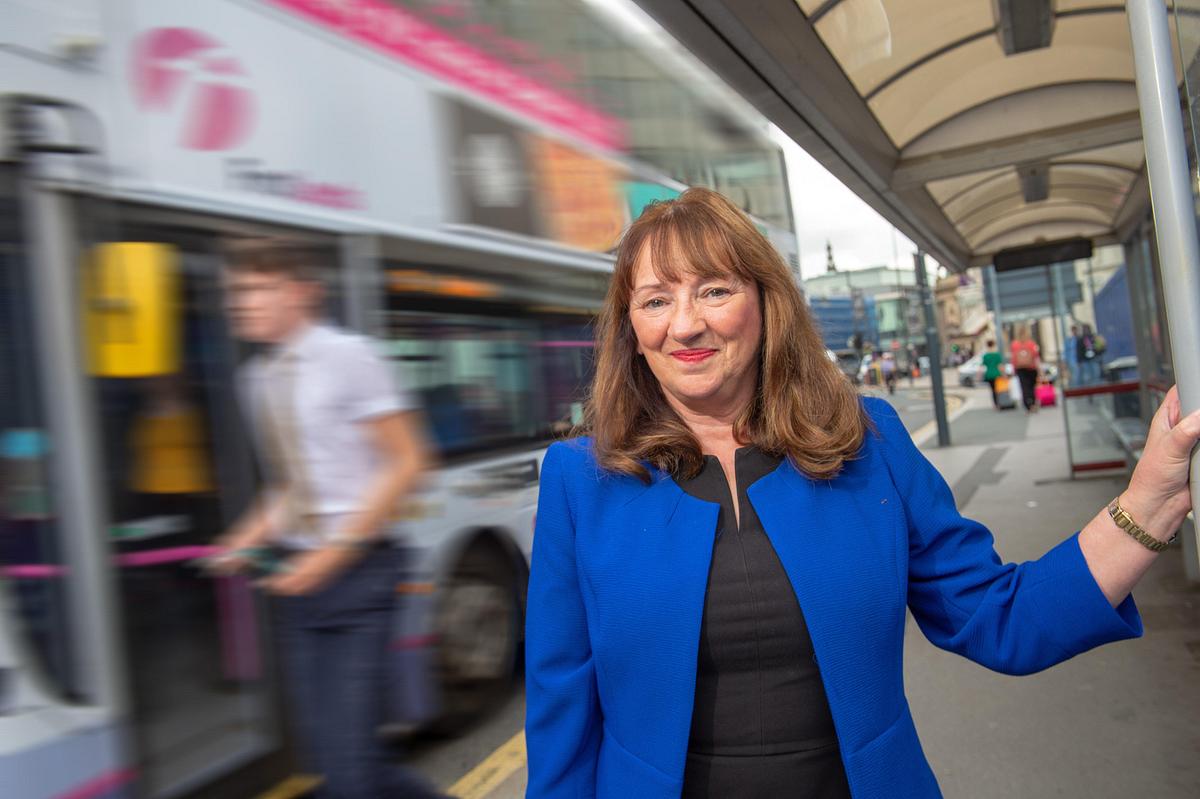
.JPG)
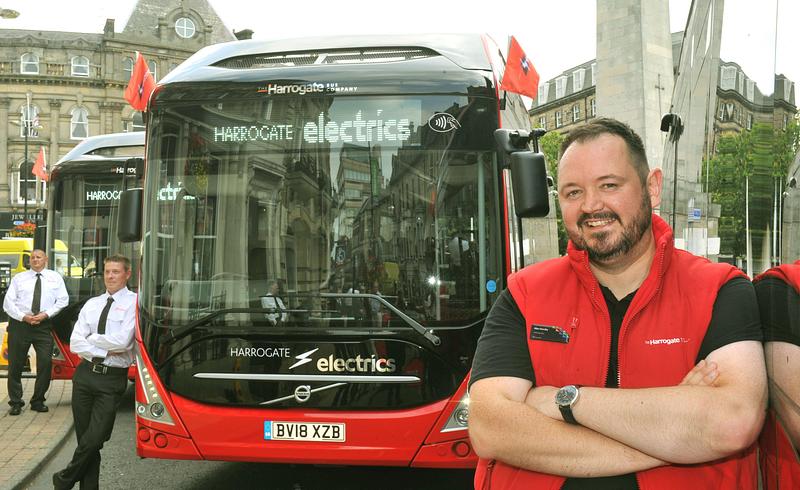

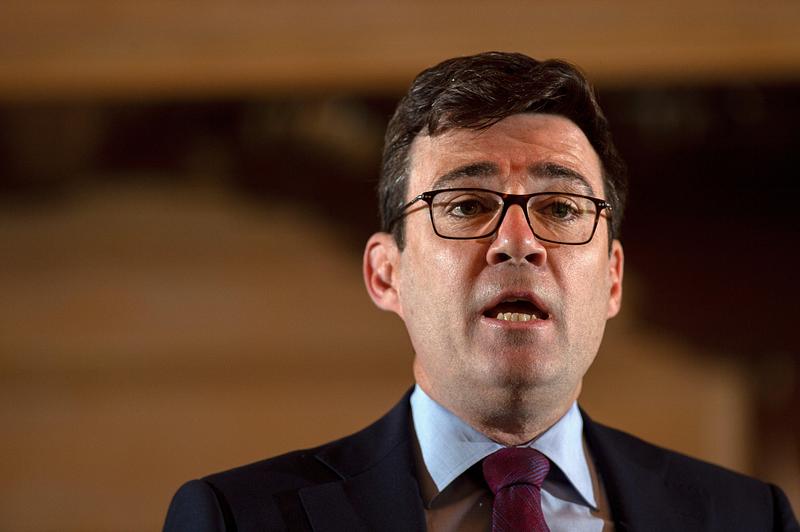
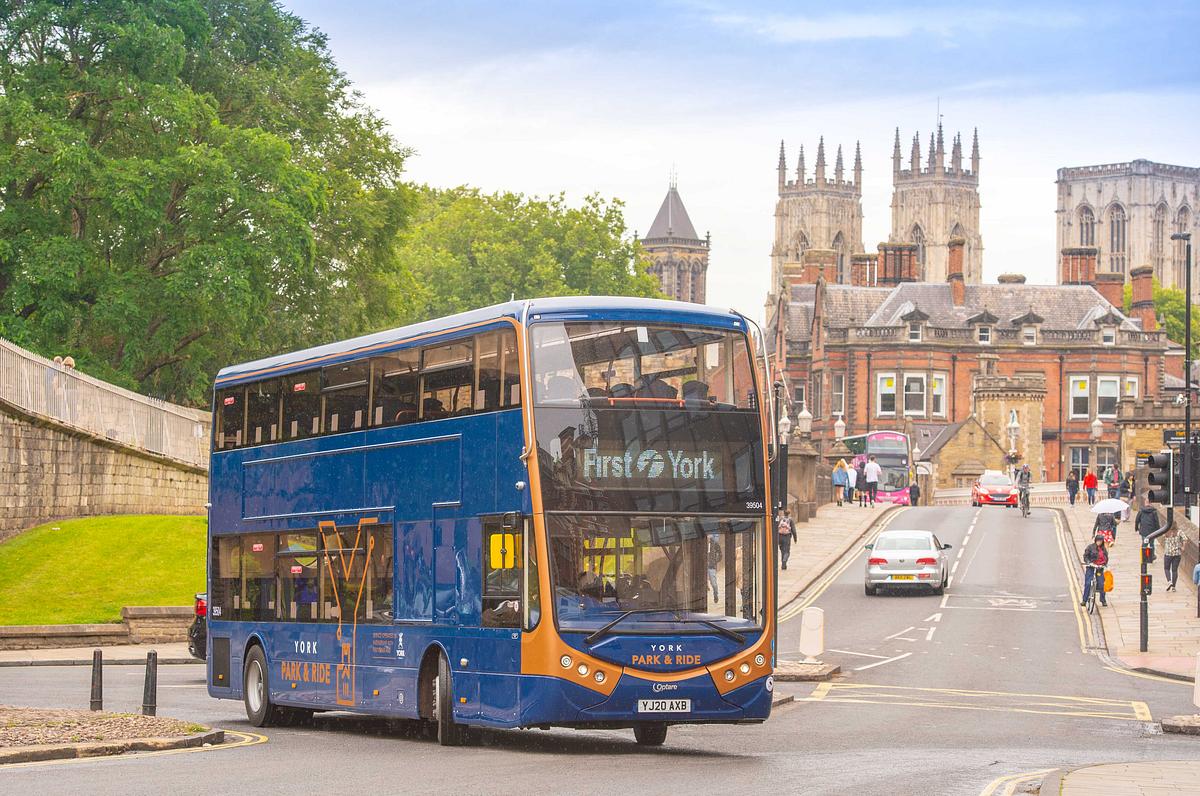
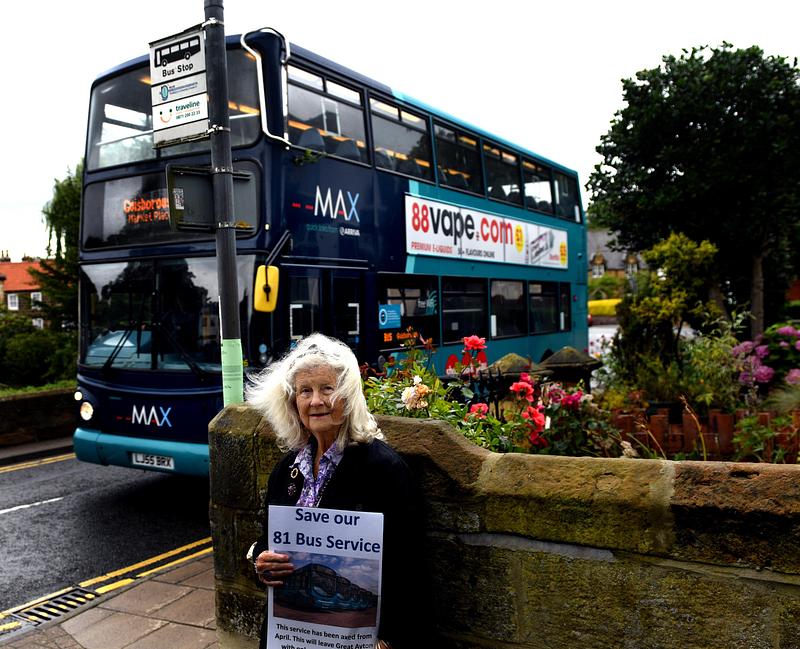
.JPG)
.JPG)